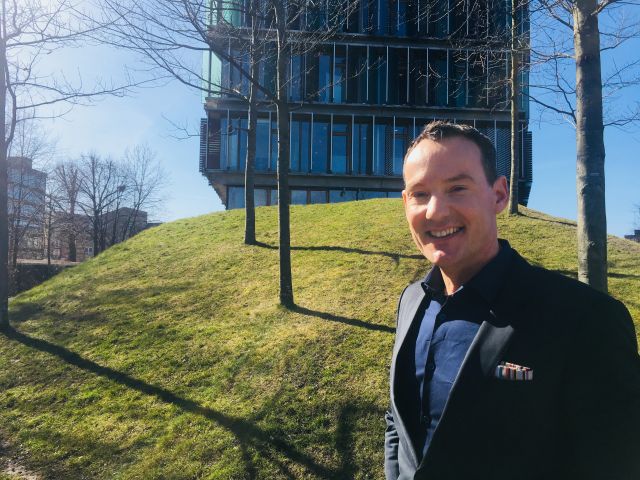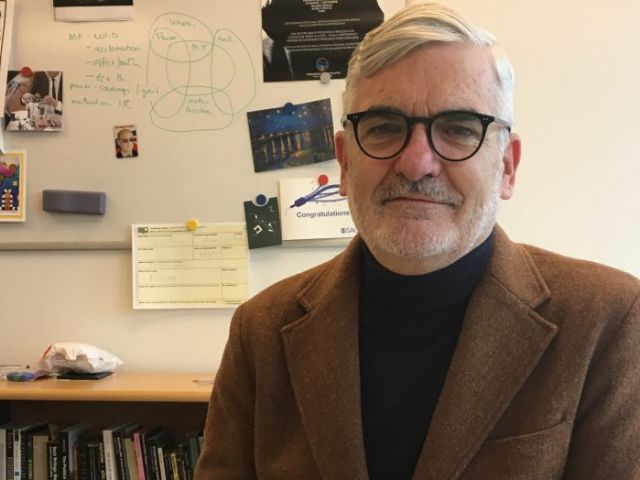Tommy Ahlers: Failing is an excellent way to learn
Watch Tommy Ahlers' speech and his answers to the audience' questions. (Video: Mette Koors/CBS WIRE)
How do universities stay attractive? How do they educate business students for the 21st century? Tommy Ahlers, the Minster for Higher Education and Science, Gregor Halff, the Dean of Education at CBS, Anita Monty, Learning Consultant at CBS, and Barbara Sporn, Professor at Vienna University of Economics and Business, offer their insights.
“Albert Einstein failed four subjects at school, and the teachers did not believe in him. Still, the man was able to fundamentally change how we see the world. So, whenever you see the entrepreneurial spirit in the students, you should not hinder it. Nurture it, and encourage it instead,” said Tommy Ahlers, the new Minister for Higher Education and Science, and continued:
“Because failing is an excellent way to learn.”
He visited CBS for the first time to give the final speech at the annual European Foundation for Management Development’s (EFMD) conference about the future of education and business schools.
In his speech, he pointed out that is the time has come to change both time the approach to the educational system, and our approach towards the students.
“The most important thing for me is that we need to encourage the students to be able and willing to follow their dreams,” he said and continued:
“To have confidence in their dreams, so that they can go out and build new companies and create growth in our society. And that calls for a more experimental approach to our educational system. An approach where the students are not afraid to fail. An approach where the students can free themselves from the expectations of high grades, and what they think the educators and the teachers would like to hear.”
Gregor Halff, the dean of education at CBS, especially took note of the new minister’s ideas on how the educational system must change, as more students would want to spend a few years working in between their bachelor’s and master’s.
“He called for a collaboration between the industry and educators. Specifically, he mentioned that we should give people the opportunity to go out into the workforce after their bachelor’s degree and then come back for their master’s degree. That requires a change in both the educational institutes, but also the industries,” he says.
Furthermore, Gregor Halff offers his suggestion on how business schools, such as CBS, can stay relevant in the future.
Business schools must stay broad and inclusive
During the conference, there were several panel debates, one of which had the title: ‘Preparing Business Schools for A Radically Different Future: A Call for Approaches and Examples.
Barbara Sporn, Professor at Vienna University of Economics and Business and Associate Director at EFMD, was part of the panel debate for that session. She argues that business schools need not only to focus on classic business-related degrees, they must open up to other subjects within humanities and technology if they want to continue being relevant in society.
Anita Monty, learning consultant at Teaching and Learning at CBS, had a session talking about how to educate business students for the 21st century. According to her, the requirements for students are changing. During these past years, the students need to have more soft skills, which include social intelligence, complex problem solving skills, and creativity.
In order for the students to develop such skills, the way we educate must change.





































































































































Comments